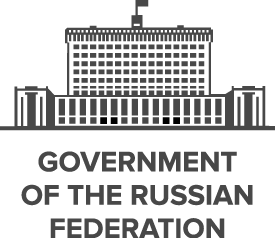Founded in the 12th century, the Principality of Muscovy was able to emerge from over 200 years of Mongol domination (13th-15th centuries) and to gradually conquer and absorb surrounding principalities. In the early 17th century, a new ROMANOV Dynasty continued this policy of expansion across Siberia to the Pacific. Under PETER I (ruled 1682-1725), hegemony was extended to the Baltic Sea and the country was renamed the Russian Empire. During the 19th century, more territorial acquisitions were made in Europe and Asia. Defeat in the Russo-Japanese War of 1904-05 contributed to the Revolution of 1905, which resulted in the formation of a parliament and other reforms. Repeated devastating defeats of the Russian army in World War I led to widespread rioting in the major cities of the Russian Empire and to the overthrow in 1917 of the imperial household. The communists under Vladimir LENIN seized power soon after and formed the USSR. The brutal rule of Iosif STALIN (1928-53) strengthened communist rule and Russian dominance of the Soviet Union at a cost of tens of millions of lives. After defeating Germany in World War II as part of an alliance with the US (1939-1945), the USSR expanded its territory and influence in Eastern Europe and emerged as a global power. The USSR was the principal adversary of the US during the Cold War (1947-1991). The Soviet economy and society stagnated in the decades following Stalin’s rule, until General Secretary Mikhail GORBACHEV (1985-91) introduced glasnost (openness) and perestroika (restructuring) in an attempt to modernize communism, but his initiatives inadvertently released forces that by December 1991 splintered the USSR into Russia and 14 other independent republics.
Following economic and political turmoil during President Boris YELTSIN's term (1991-99), Russia shifted toward a centralized authoritarian state under the leadership of President Vladimir PUTIN (2000-2008, 2012-present) in which the regime seeks to legitimize its rule through managed elections, populist appeals, a foreign policy focused on enhancing the country's geopolitical influence, and commodity-based economic growth. Russia faces a largely subdued rebel movement in Chechnya and some other surrounding regions, although violence still occurs throughout the North Caucasus.
Russia is a semi-presidential federation.
Members:
Resources
Displaying 881 - 885 of 1046Regional Law No. 547 “On cultural heritage”.
This Regional Law regulates relations in the sphere of conservation, management and promotion of cultural heritage. Boundaries of the objects of cultural heritage, land tenure regime within the aforesaid boundaries and land use planning arrangements shall be validated by the Regional Government. Boundaries of protected areas containing objects of historical and cultural heritage shall be established and mapped in accordance with substantiating documentation.
Amended by: Regional Law No. 771 amending Regional Law No. 547 “On cultural heritage”. (2016-03-11)
Regional Law No. 539-ZCHO “On turnover of agricultural land”.
This Regional Law regulates relations related to tenure, ownership and management of agricultural land. It establishes minimum agricultural land area in the process of land consolidation of 0,04 ha. Maximum agricultural land area owned by a single natural or legal person shall not exceed 10 percent of total available agricultural land area. Regional administration shall have preferential terms for purchase of agricultural land at established price. Minimum period of lease of agricultural land for agricultural production shall be 11 months, for other authorized uses – 10 months.
Regional Law No. 591-ZZK “On areas of traditional management by indigenous small ethnic communities of the North, Siberia and the Far East”.
This Regional Law establishes that areas of traditional management by indigenous small ethnic communities of the North, Siberia and the Far East shall be considered protected areas destined for traditional management and ensuring traditional and customary rights of indigenous small ethic communities. Areas of traditional nature management can include: (a) stationary and non-stationary dwelling places, cattle camps, reindeer farms, hunters and fishermen sites; (b) land parcels and waterbodies used for traditional management; and (c) objects of cultural heritage.
Regional Law No. 634-ZAO “On protection of cultural heritage”.
This Regional Law regulates the issues of conservation, management and state protection of the objects of cultural heritage. Regional Government shall be responsible for registration of the objects of cultural heritage, modification of the status thereof, establishment of land tenure and mapping of the boundaries of land areas containing objects of cultural heritage, and establishment of historical and cultural reserves with the status of protected areas.
Regional Law No. 56-RZ “On state support of agricultural land fertility”.
This Regional Law regulates the issues of state support of agricultural land fertility. Owners and tenants of agricultural land parcels shall have the right: (a) to carry out agrotechnical, agrochemical, land reclamation and antierosion conservancy arrangements for land improvement; and (b) to obtain from state bodies information related to the state of soil fertility.


